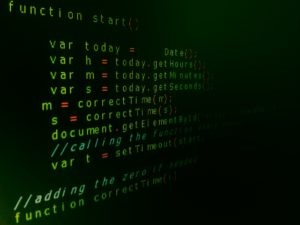With the growth of E-commerce, numerous people have changed their jobs and become programmers. The programming world is arguably thriving these days. The industry is so popular that it can’t fulfill all the demands it is bombarded with. And although the competition is ferocious out there, skillful programmers can always find their way around.
If you are reading this article, we presume you are a student who seeks python homework help, or you are just walking around trying to figure out whether it’s too late to learn Python from scratch and become on-demand. What we can tell you for sure is that there is no bad time for learning Python. You can start learning the ropes of this beautiful language at any time and become a refined expert shortly.
Below, we provide some general information about Python and its advantages, along with tips to make your learning and working processes fun, meaningful, and productive.
What is Python?
Simply put, Python is a general-purpose, high-level interpreted programming language. The language was first released dozens of years ago, but only recently has it become in the spotlight. The great thing about Python is that it supports many programming paradigms, incorporating the most chosen programming like procedural, functional, and object-oriented.
Why is Python so prevalent?
There are many reasons for choosing Python over other programming languages. The most apparent, though, is that Python is very straightforward, highly productive, and, above all, readable. What does that mean? See, unlike ordinary web page visitors, app users, and customers, two different sides of the coin exist for programmers. Other than observing the final product, programmers can (and like, obviously) check the initial code, i.e., how the app, webpage, or game works. When any of the mentioned products or services is based on Python, it is easily readable and understandable for competent people.
Learning the basics
We hope you have finally made up your mind and are ready to begin your learning path. To our mind, it would be best to start your journey by learning the following aspects:
- Hello World: This phrase is a basic command everyone learns regardless of the programming language. And while it won’t be of great assistance, it is an excellent way to introduce yourself to Python and have Hello, World as the first learned line.
- Types and Variables: Like any programmer, you will have to deal with lots of numbers, so learning how to handle them successfully and effectively is a must. Remember that Python is object-oriented, with every variable being treated as an object. The language supports two types of numbers: whole numbers and point numbers.
- Loops: Loops are crucial in every programming language. Python works with two kinds of loops, named for and These types, in turn, rely on two functions, specifically range and xrange.
Besides the mentioned, other fundamental commands are Lists, Dictionaries, Objects and Classes, Packages and Modules, Conditions, and String Formatting.
Find your niche
Improving your skills in Python is a steep learning curve. At times, your motivation to drill your programming abilities will plummet. But once you find what fuels your fire, this passion will lead you through the darkest days.
Since Python is applied in nearly any field, it would be reasonable to evaluate your interests before learning the language. Take a list and write down anything you find exciting. For instance, you may want to start learning Python to employ your knowledge in the following fields:
- Games
- Data Processing
- Machine Learning
- Automation (Scripts)
- Web page creation
- Mobile apps
Create your own projects and work on them
When you learn basic Python commands, we encourage you to start a project and practice your skills on it. You can approach it from different angles, playing around it, including and excluding pieces. For example, if you have a knack for game programming, a good project idea would be to create a location-based game, where a player’s primary goal is to capture territory. You can endow the player with more abilities or, conversely, reduce a set of moves the player can make. Whatever you decide to create will help you flex your brain muscles and better your programming expertise.
Befriend challenges
One of the best ways to improve your existing skills is through healthy competition. Thankfully, it is more than possible with Python. You can find plenty of programming challenges for Python users and brush up on your abilities. Besides, you can get more challenges by teaching others the basics of Python, dealing with more data and traffic, analyzing other programs and speeding up their work, etc.

